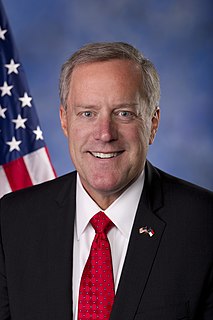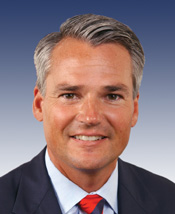A Quote by Mark Meadows
As the list of abuses by federal agencies grows, Americans are rapidly losing trust in government.
Related Quotes
We will continue to work with agencies across the government to unleash the power of open data and to make government data more accessible and usable for entrepreneurs, companies, researchers, and citizens everywhere - innovators who can leverage these resources to benefit Americans in a rapidly growing array of exciting and powerful ways.
Try this thought experiment. Pretend you're a tyrant. Among your many liberty-destroying objectives are extermination of blacks, Jews and Catholics. Which would you prefer, a United States with political power centralized in Washington, powerful government agencies with detailed information on Americans and compliant states or power widely dispersed over 50 states, thousands of local jurisdictions and a limited federal government?
Many, if not most, of the difficulties we experience in dealing with government agencies arise from the agencies being part of a fragmented and open political system…The central feature of the American constitutional system—the separation of powers—exacerbates many of these problems. The governments of the US were not designed to be efficient or powerful, but to be tolerable and malleable. Those who designed these arrangements always assumed that the federal government would exercise few and limited powers.
The RFA requires federal agencies to assess the economic impact of their regulations on small firms, and if significant, consider less burdensome alternatives. Federal agencies sometimes fail to comply at all, or simply 'check the box,' fulfilling the letter of the law, while missing the purpose of the law entirely.
One of the basic philosophical tenets of conservatism - which says that the more power devolves from the federal government to the states, the greater individual freedom grows - is just flatly contradicted by crucial junctures in the country's life, most conspicuously in the 1860s and 1960s, when it's been the federal government that's interceded against the states to secure individual freedom.
































